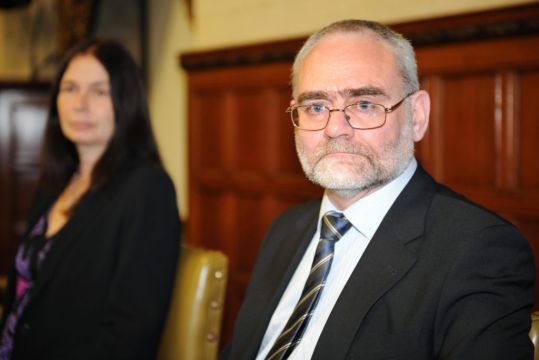The daughter of a Conservative MP killed by an IRA bomb has written about the “epiphany” moment when a man convicted of the blast “stopped justifying” his actions.
Jo Berry and Patrick Magee struck up an unusual friendship over 20 years of dialogue after the bomb attack on the Grand Hotel in Brighton.
Her father Anthony Berry was one of five people killed in the 1984 blast targeting then UK prime minister Margaret Thatcher at the Conservative Party conference.

Writing in a foreword to Magee’s memoir Where Grieving Begins: Building Bridges After The Brighton Bomb, Ms Berry described it as both an “honour and a challenge”.
Recalling her first meeting with Magee in 2000, she wrote she knew he would come with a “sense of righteousness”, but said an “epiphany moment” happened.
“I remember the difference – he was no longer justifying or saying the word we.
“He was speaking from his heart, being vulnerable and asking me about my father,” she wrote.
“He was visibly shaken and emotional; his voice had more depth … it was dawning on him for the first time that my dad had been a human being and he had killed him.
“He realised he had lost some of his humanity and was guilty of demonising them in the same way he accuses the other of demonising republicans.

“I had reached my limit of being able to listen after another hour, and that was when he said ‘I am sorry I killed your father’.
“He spoke with great feeling and conveyed how this weighed heavily in him.
“I say, ‘I’m glad it was you’ – the words just popped out, and 20 years later we are still discussing what I meant.”
She also writes: “I have never felt comfortable with justification for violence and there is much in this book”.
However she added: “I understand that he is writing for some of his community who do not feel heard.
“For some people he may have gone too far, for others not far enough.”

Magee writes about his “tabloid branding as the Brighton bomber” and how he came to be involved in the IRA, explaining how he felt “no other choices” had been open to him, referring to an “anti-imperialist struggle”.
He recalled having “misgivings” about his first meeting with Ms Berry.
Their relationship grew and their pair have since filmed for TV together and the name of Magee’s memoir is in part inspired by a poem she wrote.
“One unalterable factor, intrusive and unsettling, continually asserted itself: I had killed this woman’s father,” he wrote of their first meeting.
“Placed in the same situation I would be grateful for one iota of the calm integrity she exuded.
“Nothing in her demeanour or conduct betrayed any hint of hostility or bitterness.
“Instead, she epitomised dignity and poise.”
I had killed a fine human being
He said he shared his perspective, that the targeting of the Thatcher administration “was a legitimate act of war”.
Magee later reflects in the book that the “breaking down of stereotypes was a two-way street”.
He wrote that from the start of their dialogue, he learned that her father had been a “decent man”.
“I grew to see a stunningly simple truth: the goodness and intelligence and value I perceived in this woman must in some measure have come from her father.
“And I had killed him.
“I had killed a fine human being,” he wrote.
“It had evidently been more comfortable for me to live with the perception that as a Tory he was simply the enemy, a warmonger, driven by greed, without a personal moral code or a rounded background.
“I too was guilty of demonising the enemy.
“This realisation cut through all the layers of defence and denial, the justifications, reasoning and rationalising.”







